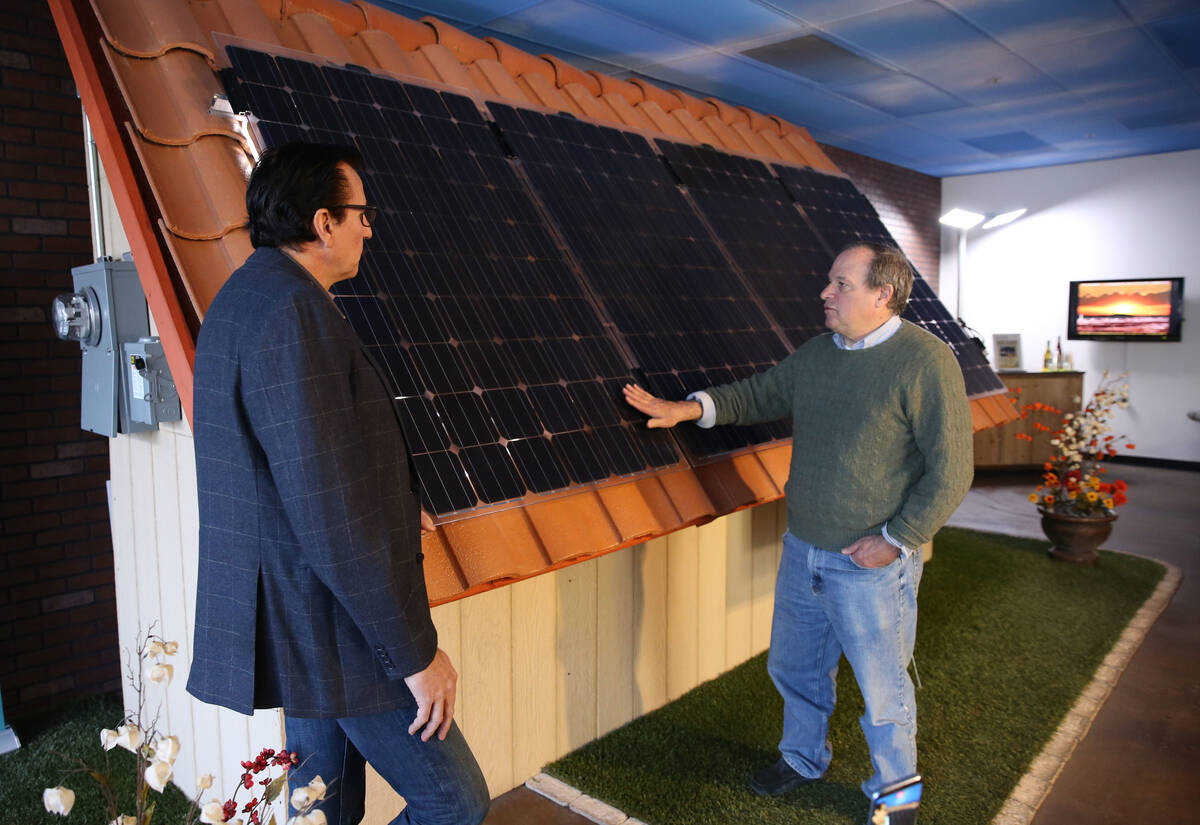EDITORIAL: President Biden extends Trump tariffs on solar panels
The environmental movement is often a web of contradictions when it comes to energy policy.
In Nevada, for instance, green groups routinely sue to block renewable energy projects or to prevent the mining of minerals such as lithium that are essential for transitioning to electric vehicles.
And now the White House is getting in on the act.
On Friday, President Joe Biden announced that he would extend for four years tariffs on imported solar panels and cells in order to protect the domestic industry. The duties were first imposed by Donald Trump and drew howls from many environmental groups, who see rooftop solar as a preferable alternative to large-scale projects.
Mr. Biden claims to believe that global warming is an “existential” threat to humanity. The president has pledged that half of all U.S. electricity generation will come from solar by 2050, up from 4 percent today. But his tariffs will make it more expensive for homeowners to convert to solar power.
“The administration wants to force consumers to pay higher prices to please domestic solar companies (which petitioned the White House to extend the tariffs), then use tax dollars to offset the artificially higher prices with tax credits for consumers,” explains Reason’s Eric Boehm. “All while patting themselves on the back for encouraging the expansion of green energy, no doubt.”
Imported solar technology — much of it from China — is vital to meeting the president’s goals. Domestic producers remain unable to supply the necessary panels. “The U.S. solar market grew to about 20 gigawatts last year from 11 gigawatts four years before,” The New York Times reports, “meaning even as domestic manufacturers contributed more supply they did not gain more market share with the tariffs in place.”
Mr. Biden did make some concessions to market realities by lifting the tariffs on a higher percentage of solar cells while saying his administration hopes to negotiate a deal that will allow duty-free Mexican and Canadian imports. While these adjustments make sense, they don’t override the fact that protectionist policies on imported goods — including solar panels — drive up consumer costs.
Not that consistency has ever been a Biden hallmark. The president purposely hamstrung domestic energy producers from his first day in the Oval Office. But when rising gasoline prices became a political headache, he begged OPEC to pump, pump, pump.
Which is it?
The same goes for solar panels. If the Earth and humanity will cease to exist without a rapid transition to green energy, shouldn’t Mr. Biden be doing everything possible to make it easier for U.S. consumers to go solar rather than erecting financial barriers to that objective?

















